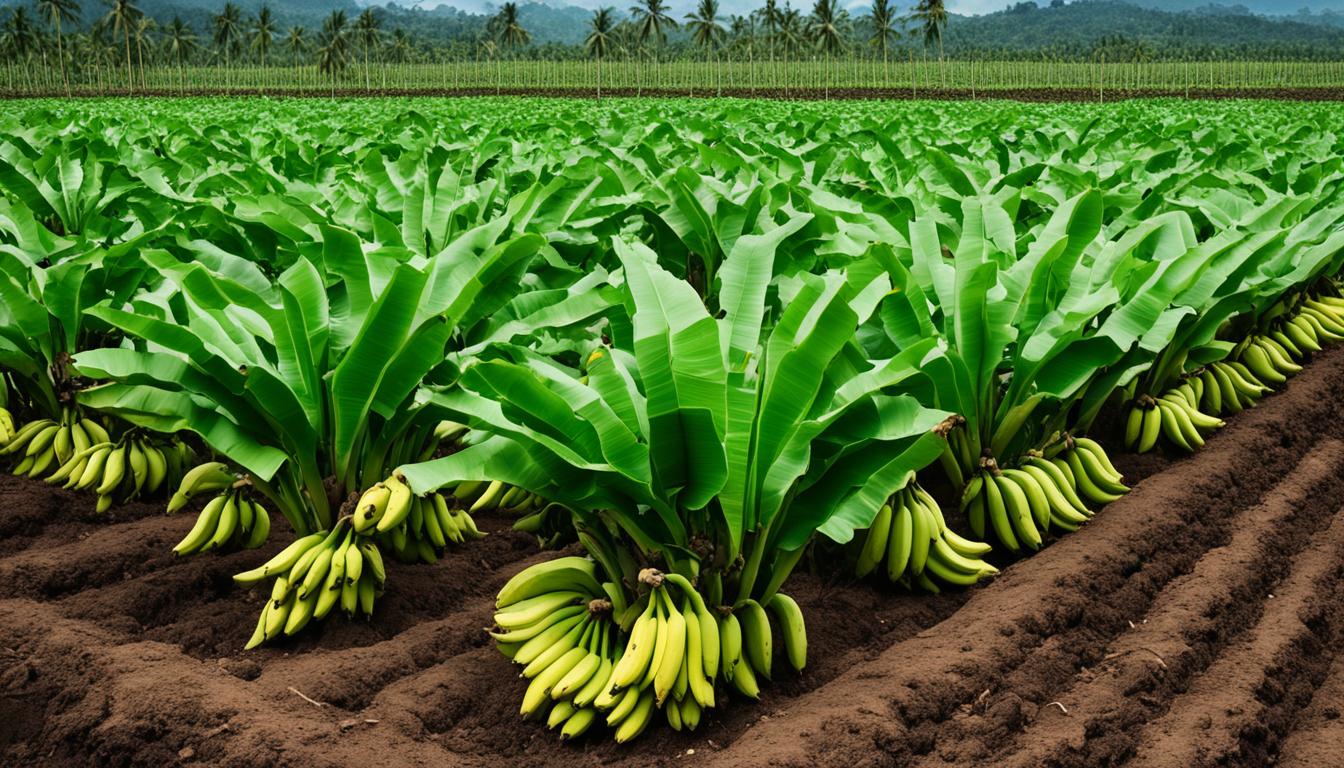Sustainable and eco-friendly farming practices are increasingly popular among environmentally conscious consumers. Baby bananas, also known as Lady Finger bananas, are a great example of how sustainable agriculture can benefit both farmers and the environment. In this section, we will explore how baby bananas fit into a sustainable and eco-friendly farming model.
Baby bananas are a type of small, sweet banana that is grown in many tropical regions. They are grown using sustainable farming methods that prioritize the health of the environment and the wellbeing of farmers. In the following sections, we will discuss the benefits of sustainable farming practices and how they are applied to sustainable banana farming.
Join us as we delve into how sustainable and eco-friendly farming practices can be utilized with baby bananas to promote biodiversity, conserve natural resources, mitigate climate change, ensure future food security, and improve farmers’ livelihoods.
The Benefits of Sustainable Farming
Sustainable farming practices play a vital role in preserving the environment and ensuring food security for future generations. By utilizing sustainable farming methods, farmers can promote biodiversity, conserve natural resources, and help mitigate climate change, all while producing high-quality crops.
One of the key advantages of sustainable agriculture is its ability to promote biodiversity. Sustainable farming methods, such as crop rotation and the use of cover crops, help to maintain healthy soil and encourage the growth of a diverse range of crops and wildlife. This, in turn, can help boost the local ecosystem, improve soil health, and reduce the need for harmful pesticides and fertilizers.
Conserving natural resources is another key benefit of sustainable farming practices. Through the use of techniques like precision farming and water conservation, farmers can reduce the impact of agriculture on the environment and help preserve critical resources like water and land.
Perhaps most importantly, sustainable farming methods can help ensure food security for future generations. With the global population set to reach nearly 10 billion by 2050, it is crucial that we develop sustainable agriculture practices that can meet the growing demand for food while minimizing the impact on the environment.
Sustainable farming practices are not only environmentally friendly but also economically and socially beneficial. By adopting these practices, farmers can increase their yields, reduce costs, and improve their livelihoods. Additionally, the market demand for sustainably produced goods is growing, providing farmers with an opportunity to access new markets and increase their profits.
Overall, sustainable farming practices are essential for creating a more sustainable future. By adopting eco-friendly farming methods, we can help preserve the environment, maintain natural resources, and ensure that there is enough food to feed the world’s population for generations to come.
Baby Bananas and Sustainable Farming
Baby bananas are a prime example of how sustainable farming can be achieved through eco-friendly agricultural practices. Unlike traditional banana varieties, baby bananas grow in smaller and more diverse agroecosystems, making them suitable for organic farming and integrated pest management.
Organic farming is a method of cultivation that avoids the use of synthetic pesticides and fertilizers. Instead, organic farmers rely on natural inputs such as compost and manure to nourish their crops. This type of farming reduces the negative impact of chemicals on the environment and promotes healthier soil and water resources.
Integrated pest management (IPM) is another sustainable farming practice that is well-suited to baby banana cultivation. IPM involves the use of a variety of pest management strategies to minimize the use of synthetic pesticides. For example, farmers might use natural predators, such as ladybugs or praying mantises, to control pest populations instead of spraying the crop with chemicals.
Aside from their eco-friendliness, baby bananas also have economic and social benefits for farmers. Sustainable banana farming can provide higher and more stable incomes for smallholder farmers who might otherwise struggle to compete with larger, more industrialized operations. Additionally, sustainable banana farming can help foster more equitable and resilient food systems, which are essential for ensuring food security in the face of climate change.
In conclusion, baby bananas are an excellent crop for sustainable farming practices. By cultivating this unique and delicious variety of banana, farmers can help protect the environment, support their local communities, and ensure a healthier and more equitable future for all.

